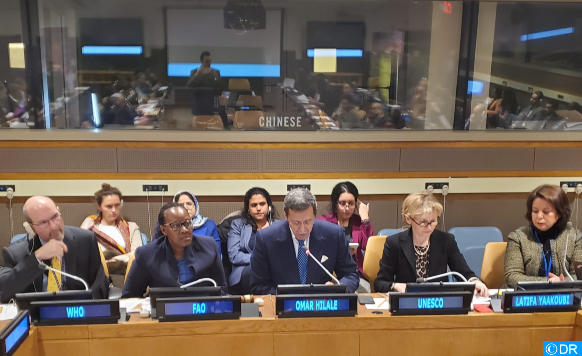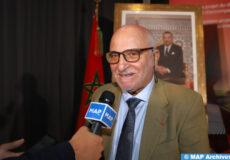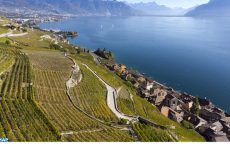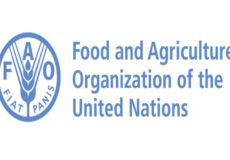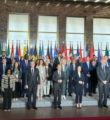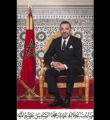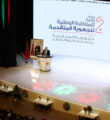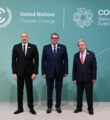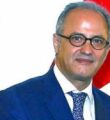Royal Vision for Preservation of Argan Tree Praised by UN Agencies in New York
United Nations – The permanent mission of the Kingdom of Morocco to the United Nations organized a high-level meeting under the theme: “The Argan tree, ancestral source of sustainable development”, during which the various participants praised the efforts made by HM King Mohammed VI in preserving the Argan tree, endemic to the Kingdom, while noting the importance of this key sector for sustainable development.
During this event held Wednesday, director of the World Health Organization (WHO) office in New York, Werner O’bermeyer, stressed that the Argan tree is “one of the miraculous resources” of Morocco, in that it boast many benefits especially in the nutritional, cosmetic and medicinal fields.
In this regard, he reported on scientific research on the therapeutic benefits of the Argan tree in the fight against diabetes and hypertension, and its ability to potentially immunize against cardiovascular disease, in addition to its use in the treatment of dermatological infections and other skin problems. “For us at WHO, traditional and alternative medicine is of great importance to the health community,” added O’bermeyer.
For her part, Carla Mucavi, director of the Food and Agriculture Organization (FAO) office in New York, stressed the contribution of the Argan tree to sustainable development, as it is a resilient tree that adapts well to harsh climatic conditions and is therefore a “true climate champion”.
Mucavi said that the traditional cultivation of the Argan tree is also a potential driver of food security, enabling families and especially rural women to promote sustainable income-generating activities. “Therefore, the Argan tree can also be described as a champion of sustainable development goals,” she said.
Welcoming the setting up by Morocco of an action plan for the preservation of the Argan tree, aimed at supporting, among others, local communities and cooperatives operating in this sector, the FAO official expressed the “full support” of the UN agency to the Kingdom to “raise awareness of the international community on the importance of protecting this tree”.
In her turn, Marie Paul Roudil, director of the United Nations Educational, Scientific and Cultural Organization (UNESCO) office in New York, noted that the Argan tree, an indigenous tree in Morocco, is “a fundamental element of the natural, agricultural and pastoral heritage of local communities. The Argan tree thus represents “a symbol of UNESCO’s strategy to promote the links between culture and nature,” she stressed.
In addition, Hamid Rashid, head of research and development at the United Nations Department of Economic and Social Affairs (UN-DESA), said that the 65 million year-old Argan tree is “a resilient and critical tree for our survival” in that it helps combat soil erosion and desertification.
“It is an intangible cultural heritage,” he stressed, while commending Morocco’s efforts to reverse the trend of deforestation affecting the Argan tree.
In addition, Babita Bisht, deputy director of the External Affairs Department of the Green Climate Fund, noted that the 10,000 ha Argan tree plantation project in Morocco, launched by HM King Mohammed VI on February 13, and which will be co-financed by Morocco and the Green Climate Fund, constitutes one of the flagship projects in the field of climate adaptation in Africa.



